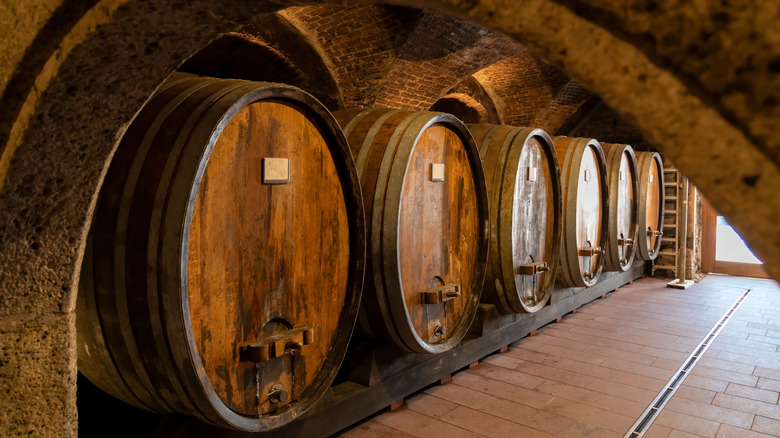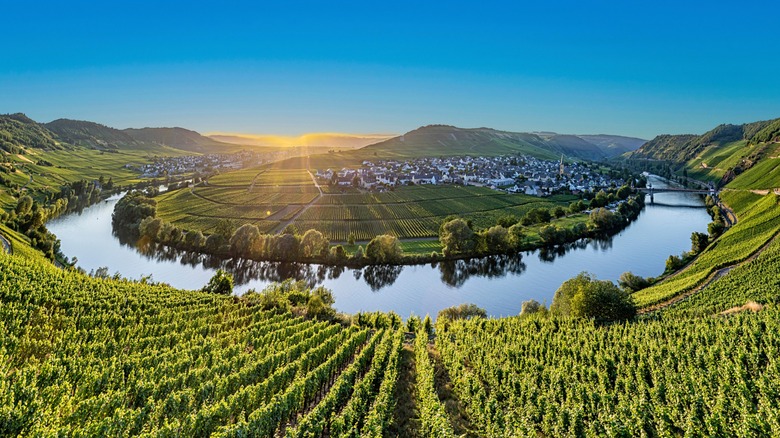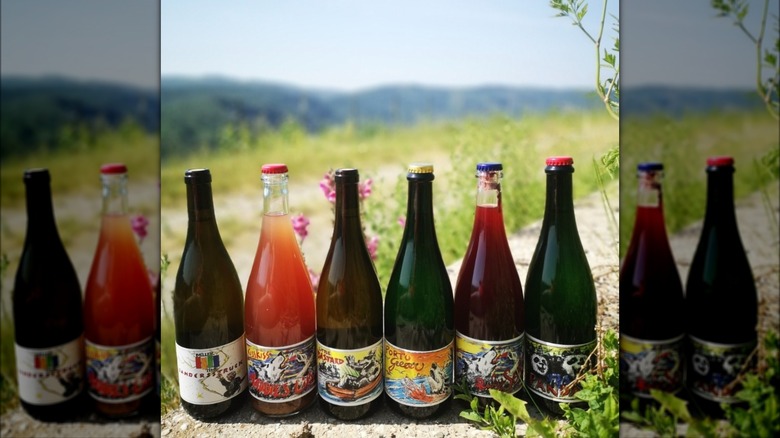The World's Oldest Winery Has Been Operating Since 862 AD
The year is A.D. 862. Charlemagne was crowned Emperor of the West at the beginning of the century. The concept of algebra has only been around for a generation or so. The Viking chieftain Rurik leads his band of Varangians into what will eventually become Imperial Russia. And in the Mosel Valley in modern-day Germany, the Stavelot abbey begins producing wine.
When one thinks of wine, the idea of age follows suit. There's a certain allure or prestige associated with older wines. And although much of the spotlight is centered on historic regions such as France and Italy, which have officially-designated areas of origin for wine, Germany remains a staple in wines of the "old world." This much is evident in the staying power of the Staffelter Hof winery (previously called Stavelot), who have recorded evidence of wine-making dating back over 1100 years. So what's the story of this establishment? How has it remained in operation to this very day? And crucially, is the wine any good?
The medieval origins of Staffelter Hof
A wine or winery that has staying power will last for generations. Even so, keeping a winery in production for over 1100 years is frankly astounding. But that's exactly the case with Staffelter Hof, the oldest winery in the world that is still running and one of the oldest continuously-run companies in the world. The first documented recording of this winery comes from a manuscript written in A.D. 862 in which King Lothar II donated the St. Peter's Chapel along the banks of the Mosel to Stavelot Abbey, along with the "wine rent" associated with the chapel. The reason given? Simply that the abbey lacked wine. ("Ob exiguitatem vini," as the manuscript noted.)
Since the Christian faith traditionally carries deep associations with wine, it perhaps comes as no surprise that many abbeys and monasteries all over Europe were church-sanctioned wineries during the Medieval period. After all, wine was crucial to conduct a proper church service. Such was the case for much of Staffelter Hof's history, with it being run by either the church or the national government all the way until 1805, when the land was purchased by Peter Schneiders. Since then, Schneiders' descendants have kept the winery in the family, passing it down through the generations to this very day.
Historic wine, modern practices
Staffelter Hof specializes in making riesling wines, which originated in the area and are thought of as sweet, white wines though they come in other varieties as well. The current overseer of the estate, Jan Matthias Klein, still produces more traditional wines, but he has also steered the winery toward more modern practices. In 2011, Staffelter Hof began making wine completely organically, using natural pesticides on its vines. As well, the wines are largely unfiltered, unfined, hand bottled, and use zero sulfur. These traits all lend themselves well to Klein's goal of making naturally-produced wine — a huge progression from such an old and traditional wine-making region.
So, these new practices are fine, but is the wine good? Staffelter Hof wines have been described as sweet, acidic, fresh, and light. A relatively low alcohol-by-volume (under 11%) makes these wines approachable and refreshing. Staffelter Hof's natural methods of bottling even leave trace amounts of CO2 which lighten and enliven your palate. The specific regional sourcing of the wine also makes it a trustworthy bottle to choose. In other words, it's no coincidence that the winery has been around for this long and that it continues to see success. So if you see a bottle of Staffelter Hof around, give the wine a proper chill and experience both the traditions and the novelties that the world of wine can offer.


